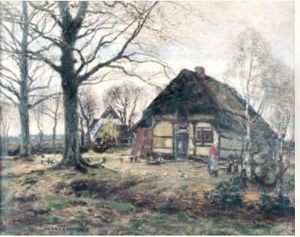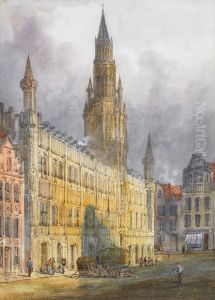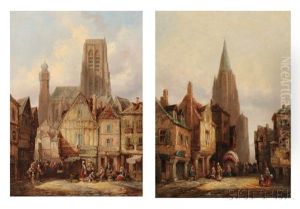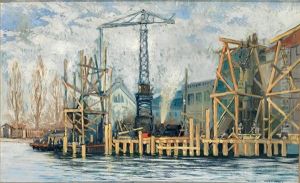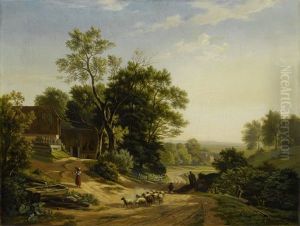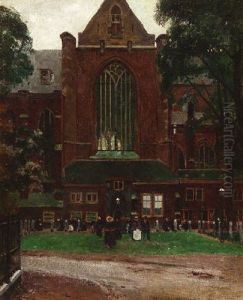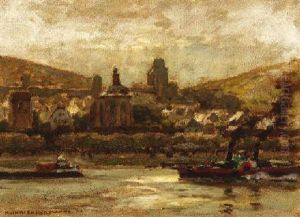Heinrich Hermann Paintings
Heinrich Hermann was a German architect known for his contributions to the field of urban planning and architecture during the late 19th and early 20th centuries. Born on July 21, 1862, in Großzschocher, which is now part of Leipzig, Germany, Hermann grew up in a period marked by rapid industrialization and urbanization across Europe.
Hermann's architectural education began at the Technische Hochschule (now Technische Universität) in Munich, where he was exposed to the prevailing historicist styles of the time. After completing his studies, he traveled extensively, which allowed him to observe various architectural trends and urban developments across Europe.
In the early phases of his career, Hermann worked on residential and industrial projects, often incorporating elements of the Jugendstil, the German variant of Art Nouveau. His designs showed an appreciation for both traditional forms and the emerging modernist aesthetic, which was beginning to challenge the ornate styles of the past.
As Hermann's career progressed, he became increasingly involved in urban planning. He believed that architecture and city planning should be closely integrated and that the design of buildings should consider their urban context. This perspective was influential in his work on various urban development projects, where he advocated for green spaces, efficient transportation networks, and harmonious architectural ensembles.
One of Hermann's most significant contributions was his involvement in the planning of the city of Mannheim. His work there exemplified his approach to urban design, which combined functionality with aesthetic considerations. Hermann's legacy in urban planning is characterized by his efforts to create livable and sustainable cities that catered to the needs of their inhabitants.
Heinrich Hermann continued to work and influence the field of architecture and urban planning until his death on October 19, 1942, in Baden-Baden, Germany. Despite the challenges posed by the World Wars and the changing political landscape, Hermann's work remained relevant, and his ideas on integrated urban planning have continued to inform the discipline to this day.
